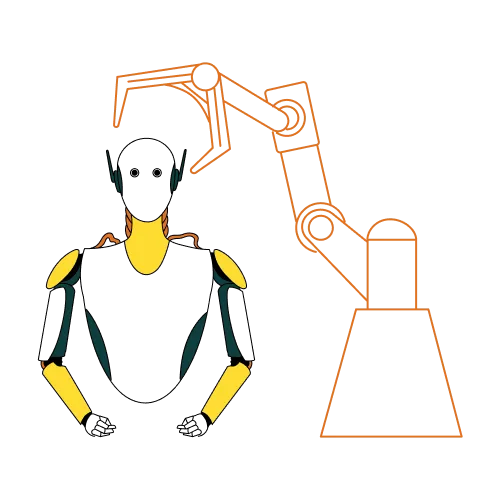Compound growth
Small improvements multiply. A 10% gain across twelve metrics doesn't add up to 120% - it compounds to 3x growth. This is the mathematical engine behind systematic growth.

Small improvements multiply. A 10% gain across twelve metrics doesn't add up to 120% - it compounds to 3x growth. This is the mathematical engine behind systematic growth.

Small wins multiply when your growth engines work together. Traffic feeds the funnel, the funnel fills the pipeline, the pipeline validates your product. Better product-market fit makes traffic easier to convert.
Most marketers optimise one engine at a time. The real leverage comes from aligning all four so improvements stack and multiply.
That's compound growth: the difference between incremental gains and exponential results.
Random tactics scatter your focus and burn you out. Systems compound effort into sustainable growth. See why working without structure leads to chaos.
Deep channel expertise doubles revenue but still hits a ceiling. Mastering one engine isn't enough. See why system thinking beats specialisation.
Sarah runs fewer experiments but wins anyway. She aligns 12 metrics across 4 engines. See how systematic leverage creates exponential results.
Small improvements across 12 metrics multiply into exponential growth. Learn how engines connect, why improvements compound, and where leverage lives.
Install tracking infrastructure that shows which metrics drive revenue. Build your scorecard and launch your first cycle with the right foundation.
Sean Ellis
Rating
Rating
Rating
Rating
Rating

A practical framework for experiments and insights. Build loops, run tests and adopt a cadence that ships learning every week.
Eric Ries
Rating
Rating
Rating
Rating
Rating

A disciplined approach to experiments. Define hypotheses, design MVPs and learn before you scale.
Gino Wickman
Rating
Rating
Rating
Rating
Rating

A practical operating system for small teams. Install a cadence, set priorities and create accountability that sticks.
Sean Ellis
Rating
Rating
Rating
Rating
Rating

A tour of growth case studies. Identify engines, spot patterns and design experiments that fit your context.
Scale through partner relationships where other companies distribute your product to their customers in exchange for commissions or reciprocal value.
Win customers through direct sales conversations where reps guide prospects from discovery to close with personalised solutions and relationship building.
Build distribution through your personal brand and network where your expertise and story attract customers who trust you before your company.
Analyse profit per customer to determine if your business model works at scale before investing heavily in growth and customer acquisition.
Drive acquisition and expansion through product experience where users discover value before sales conversations and upgrade based on usage.
Calculate your true growth trajectory by measuring the rate at which your business grows when gains build on previous gains over multiple periods.
Group customers by acquisition period to compare behaviour patterns and identify which acquisition channels and time periods produce the best long-term value.
Track revenue growth from existing customers through expansion and contraction to prove your product delivers increasing value over time.
Measure the percentage of customers who stop paying to identify retention problems and calculate the true cost of growth in subscription businesses.
Calculate the total cost of winning a new customer to evaluate marketing efficiency and ensure sustainable unit economics across all channels.
Track predictable yearly revenue from subscriptions to measure business scale and growth trajectory in B2B SaaS and recurring revenue models.
Track your user journey through Acquisition, Activation, Retention, Referral, and Revenue to identify which stage constrains growth most.
Build self-reinforcing systems across demand generation, funnel conversion, sales pipeline, and customer value that create continuous momentum.
Identify the fundamental factors that directly cause business expansion, concentrating resources on activities that generate measurable results.
Identify and leverage limitations as forcing functions that drive creative problem-solving and strategic focus.
Diagnose and break through stagnation by identifying which business mechanisms have reached capacity and require new approaches.
Focus resources on high-impact business mechanisms where small improvements generate disproportionate results across the entire customer journey.
Focus your entire organisation on the single metric that best predicts success at your current growth stage, avoiding distraction and misalignment.
Cultivate belief that skills and results improve through deliberate effort, treating setbacks as learning opportunities rather than fixed limitations.
The cockpit that sits above your four growth engines. Individual teams can excel at their own metrics, but without orchestration they're musicians playing different songs. This is where everything comes together and where improvements in one engine amplify gains in another.


Pipeline doesn't fill itself. These tools help you identify who to target, reach them at scale, and create content that earns attention in crowded markets.

The wrong tools create friction. The right ones multiply your output without adding complexity. These are the tools I recommend for growth teams that move fast.

Deals slip through cracks when your sales stack doesn't work together. These tools keep your pipeline visible, your follow-ups timely, and your process tight.

Acquiring customers is expensive. These tools help you keep them longer and grow their accounts so your acquisition costs actually pay off over time.

Traffic means nothing if it doesn't convert. These tools help you capture leads, nurture them automatically, and understand what's actually working in your funnel.
HubSpot is powerful when configured properly and a mess when it's not. Set up your instance correctly from the start so your data stays clean and your team trusts the system.